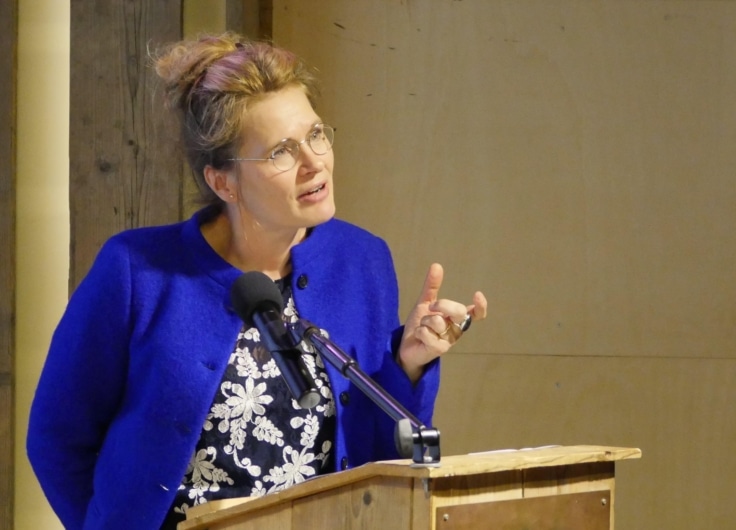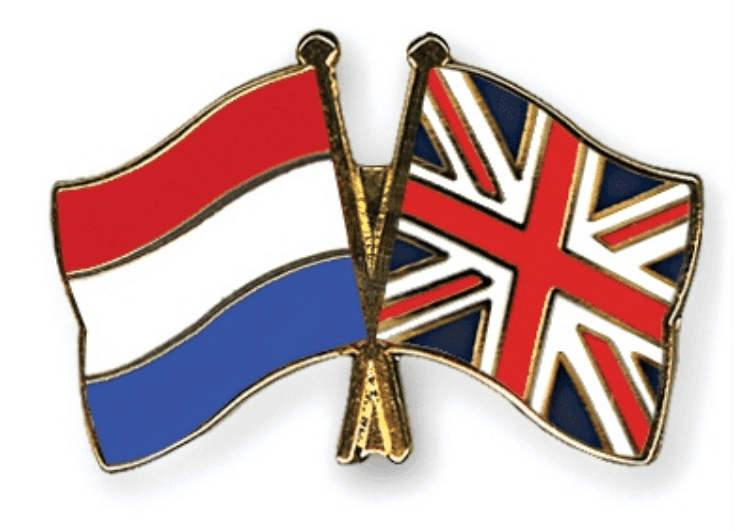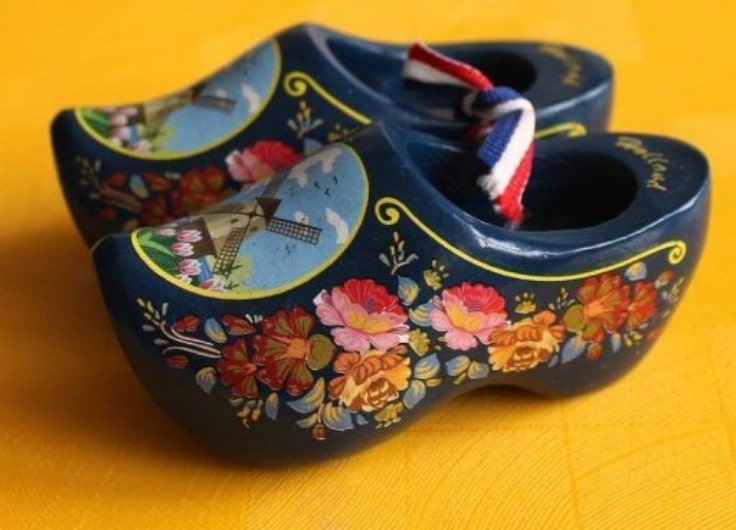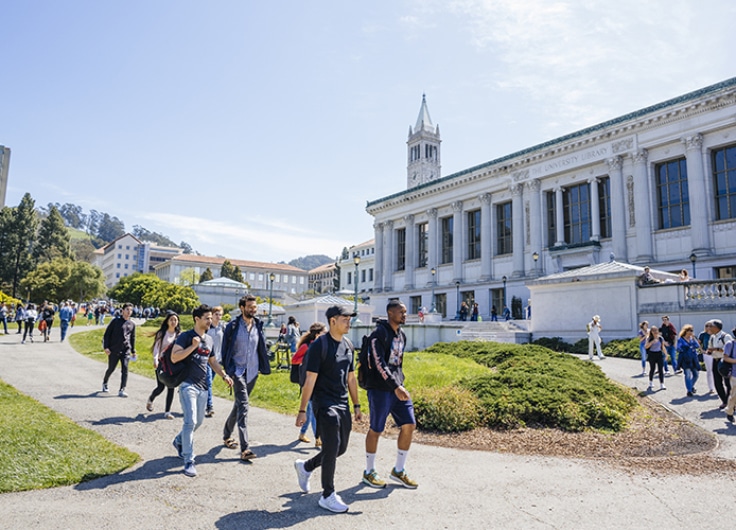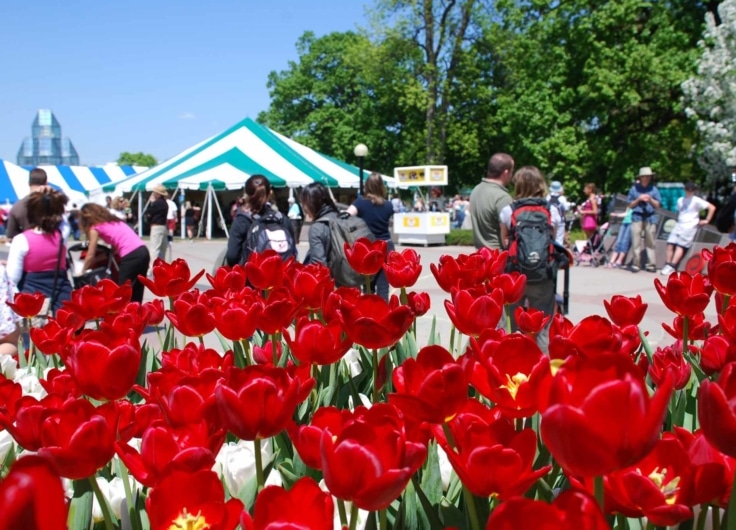New Study Shows That Dutch and Flemish Emigrants Cling to Their Language and Culture
Their language and culture continue to play an important part in the everyday lives of emigrated Dutch and Flemings. That is the surprising conclusion reached by Vertrokken Nederlands (Emigrant Dutch), the very first global study of the preservation or the loss of Dutch language, culture and identity. The research was carried out by the Meertens Institute at the request of the Dutch Language Union.
Currently, an estimated 700,000 to over one million Dutch people live abroad, compared to about 440,000 Belgians (Flemings and Walloons). No fewer than 7,000 emigrants originating from 130 countries took part in the study entitled Vertrokken Nederlands (Emigrant Dutch). This study serves as an addendum to the Staat van het Nederlands (The State of Dutch), a study – yet again commissioned by the Taalunie (Dutch Language Union) – that focused on the choice of language in the Netherlands and Flanders, which was carried out in 2017 by the Meertens Institute and Ghent University.
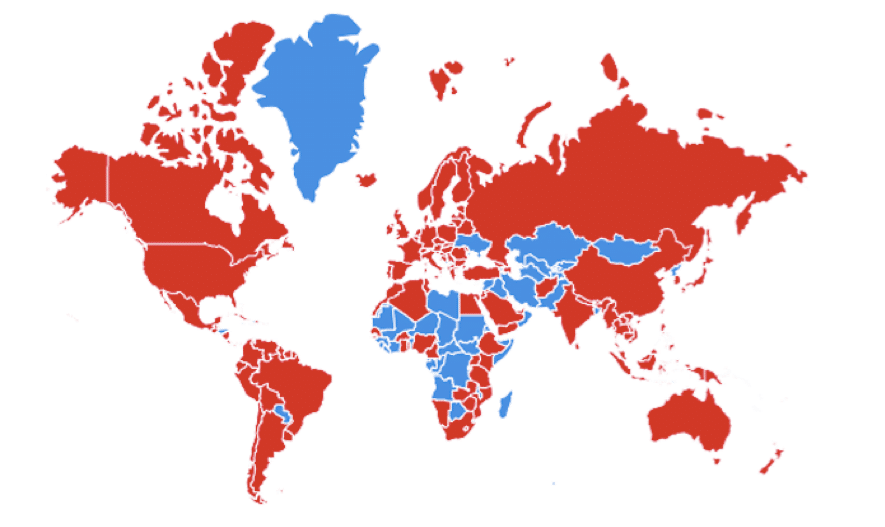 No fewer than 7,000 emigrants originating from 130 countries (cf. red on map) took part in the study entitled Vertrokken Nederlands (Emigrant Dutch).
No fewer than 7,000 emigrants originating from 130 countries (cf. red on map) took part in the study entitled Vertrokken Nederlands (Emigrant Dutch).The results of the Vertrokken Nederlands study demonstrate how many emigrants consider Dutch a core value of their identities. They would like to pass on the language and culture to their children and feel the need to gather information on how to, for instance, raise children bilingually in their new country of residence.
This conclusion is quite surprising, as previous research has shown that Dutch and Flemish people who had left for the United States, Canada or Australia in the previous century often gave up on their language rather quickly.
In what follows, you can read a summary of Vertrokken Nederlands’ main findings:
+ The majority of participants in this study consider Dutch one of the most frequently used languages in the new country of residence: 97 per cent of participants speak Dutch every week, 64.6 per cent of whom speak Dutch over eight hours a week, mainly in private circumstances and on social media.
+ Over 85 per cent of participants consider Dutch a core value of their own identity.
+ Emigrants continue to read Dutch-language literature, read the daily news in Dutch, and watch Dutch-language television and films, both online and offline.
+ Apart from language, nearly all emigrants hold on to the food they know or continue to cook Dutch and Flemish specialities, including favourites such as stroopwafels, liquorice, chocolate sprinkles, croquettes, Dutch cheeses, speculaas (gingerbread), frites or patat, peanut butter, mayonnaise and apple pie. These delicacies are purchased at ‘homesick stores’, among others.
+ Two-thirds of emigrants still celebrate Dutch and Flemish holidays and anniversaries, including Sinterklaas, Koningsdag
(King’s Day) or the Feest van de Vlaamse Gemeenschap (Day of the Flemish Community).
+ About 60 per cent of emigrants are members of a Dutch or Flemish club in their hometowns or belong to a Dutch or Flemish online community, e.g. a Facebook group.
+ Emigrated Dutch and Flemish people continue to cultivate a relationship with their home countries, mainly thanks to communication tools in Dutch, including social media and Skype, online newspapers, digital television and Dutch-language education.
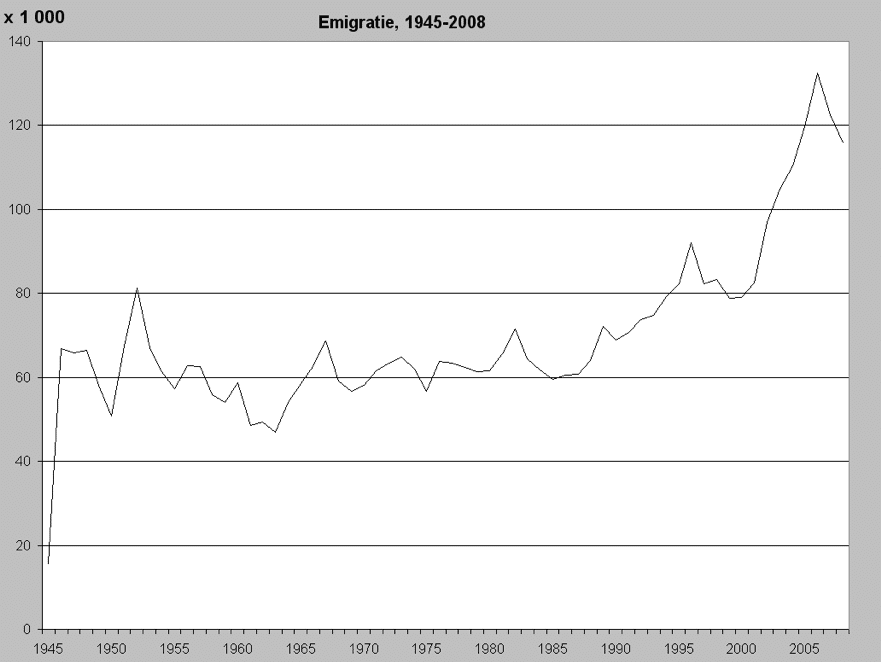 The number of Dutch people who emigrated between 1945 and 2008
The number of Dutch people who emigrated between 1945 and 2008source: Statistics Netherlands
Special needs
Researchers asked the Dutch and Flemish emigrants whether they felt the need for linguistic support from the Low Countries. Their answers demonstrated that they indeed feel that need, albeit more pressing in some countries than it is in others. What emigrants crave most is:
+Information about Dutch-language education and bringing up children bilingually;
+ Better and free access to Dutch-language television, film and radio;
+ Access to Dutch-language media, e.g. news sites, (digital) newspapers and magazines;
+ Dutch-language books, e.g. textbooks, audiobooks, children’s books and literature, and information about recent publications;
+ Information about cultural events, e.g. announcements about visiting Dutch or Flemish performers, musicians, authors and academics;
+ Dutch-language healthcare, in particular in retirement homes;
+ (Online) shops offering Dutch and Flemish products (liquorice, chocolate sprinkles, et cetera);
+ Assistance with administrative and practical affairs.
On the basis of this, Vertrokken Nederlands’ main recommendation is to find out whether it is feasible to create a digital or physical information office about Dutch language, culture and education, aimed specifically at emigrated Dutch and Flemish people.
According to the researchers, this information office could amplify and solidify the emigrants’ commitment to their home countries. The centre could be a partnership between various institutions, including Taalunie (Dutch Language Union), Internationale Vereniging voor Neerlandistiek (International Association for Dutch Studies), Stichting Nederlands Onderwijs in het Buitenland (Foundation for Dutch Education Abroad), consulates and organisations targeting emigrants, including Stichting GOED (Grenzeloos Onder Een Dak), Stichting Nederlanders Buiten Nederland (Foundation for the Dutch Outside the Netherlands) and Vlamingen in de Wereld (Flemings in the World).
Any organisations or individuals who might be interested in collaborating or contributing ideas concerning a future information office or a follow-up to the pilot study should get in touch with the project manager Nicoline van der Sijs, Meertens Institute, post@nicolinevdsijs.nl. All interested parties will be invited to a debate at the start of 2020.
Click here to download the full research report. In Dutch.
A slightly modified version of this article was published earlier on Neerlandistiek.nl.


